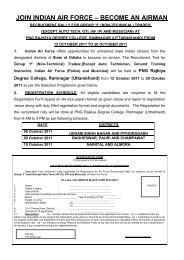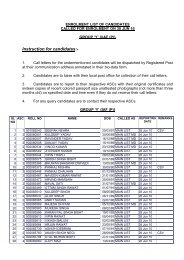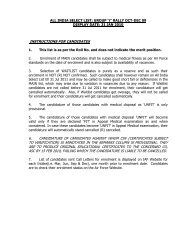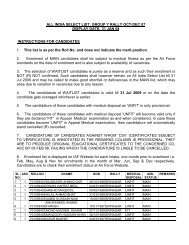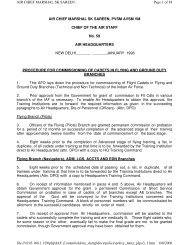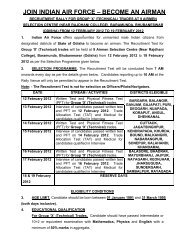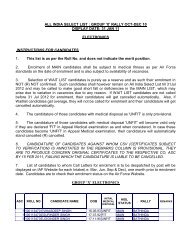You also want an ePaper? Increase the reach of your titles
YUMPU automatically turns print PDFs into web optimized ePapers that Google loves.
after ditching by drowning, usually hastened by<br />
hypothermia and exhaustion. By wearing a life<br />
jacket in the aeroplane your survival prospects<br />
are greatly improved. However, in cold water, that<br />
is 15 degrees Celsius or less, or life expectancy in<br />
the water is only about one hour.<br />
There are various other issues that have to be<br />
borne in mind while ditching. One of the most<br />
difficult things to get right in a ditching is judging<br />
the height for the round off. Most aircrew would<br />
not have experienced landings without an<br />
undercarriage. Thus you will be used to seeing a<br />
particular attitude at the round off. In the ditching<br />
case that attitude will be a little different because<br />
the aeroplane should be a little closer to the<br />
surface, to cater for the lack of an undercarriage.<br />
In general terms it is always preferable to<br />
impact the water as slowly as possible, under<br />
full control; but do not stall the aeroplane. Keep<br />
the wings parallel to the surface of the water on<br />
impact, i.e. wings level in calm conditions. One<br />
wing tip striking the water first will cause a violent<br />
uncontrollable slewing action.<br />
Ditching into the face of the swell or into<br />
waves should be avoided because the aeroplane<br />
will behave in a similar manner to one impacting<br />
a cliff face. There are many other factors that<br />
go into a successful ditching like the design,<br />
condition of sea, winds etc at the time of ditching.<br />
It will suffice to say that there is a fair amount of<br />
risk involved.<br />
After a successful ditching, the next task will<br />
be of survival. Needless to say, it isn’t easy and is<br />
inversely proportional to the amount of time spent<br />
at sea. Type of survival equipment, proximity to<br />
the coast and rescue team’s equipment would<br />
all affect your chances of survival. Regularly and<br />
(more importantly) seriously practising ditching<br />
drills helps keep presence of mind in actual<br />
situations.<br />
-Sqn Ldr Binu Venugopal<br />
INDIAN AIR FORCE 2 0 1 2 J u n e Aerospace Safety 15




